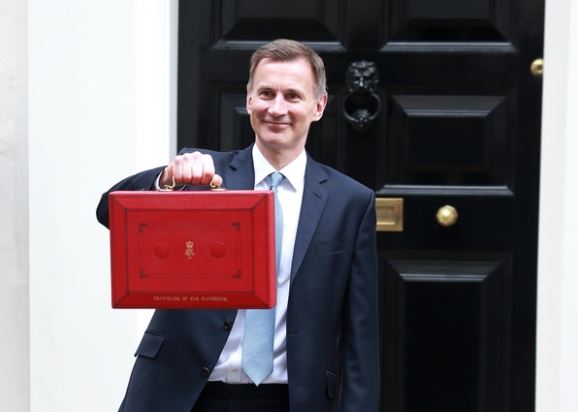Spring Budget 2024 - A Summary

I wrote in November that the Spring Budget announced today is often used as an electoral springboard for the Government. Jeremy Hunt and Rishi Sunak would like you to think their budget is just that. Kier Starmer and Rachel Reeves would prefer it was this Government’s last act, with the curtain soon to come down.
I also wrote back then that the Chancellor believed Britain had turned the corner, which some of you may have considered hefty then, and may consider so even more so now with Britain having fallen into recession last month. However, there are some suggestions this will be short-lived, and the Government will hope that is the case with the election looming, so what exactly was announced from the Despatch Box this afternoon:
The Cost of Living
- Inflation is now forecasted to fall to below the Bank of England’s 2% target before the end of 2024, a welcome relief from the high levels of inflation of the past 18 months.
- Employee National Insurance Contributions, having already been cut from 12% in the Autumn, will now be cut further from 10% to 8% with effect from 6 April. This will mostly help middle-income earners between £25,000 and £50,000, who have been hit by the freeze to personal tax allowance thresholds in recent times, and will save the average earner a further £450 per year.
- The self-employed also receive a further cut, with their contributions reducing from 8% to 6% on top of their previous cut in the Autumn.
- Alcohol Duty will remain frozen until February 2025 (the freeze was due to end in August), and Fuel Duty, frozen since 2011, remains so. However, it remains to be seen, as with previous freezes to Fuel Duty, how much of this benefit is actually passed onto each of us at the pumps.
- Looking more to the future, in line with its “smoke-free generation” aim, the Government will introduce a new vaping levy in 2026. A corresponding increase to tobacco products will occur at the same time to try and prevent people returning to such products over vaping, and the levies are expected to raise £500m by 2028/2029.
Many of us will likely welcome taking home more of our pay, but as in the Autumn, there has been no uplift to personal tax allowances (the levels before which you pay tax, or pay the next band of tax). This means that as wages rise to account for inflation, many will be drawn into higher tax brackets – and it should be noted wages do continue to rise faster than inflation. This remains a very real possibility for millions around the United Kingdom, and is why many state that the tax burden on working people is due to continue to rise to some of the highest levels ever recorded.
As also mentioned in November, public services continue to call for further funding, and the predominant recipient of National Insurance Contributions, the NHS, does so in particular - the Chancellor announced £2.5bn in extra funding for the NHS next year. However, with the reduction to National Insurance Contributions today, in the short term at least, it appears the funding for this will not be coming from individuals' pockets and pay packets.
Investment and Business Taxes
- The VAT threshold, when small businesses must register to pay VAT, will rise to £90,000 in April (from £85,000). Whilst many small businesses will welcome the move, this is the first increase in seven years. It may therefore be questioned whether this makes up for the fact that inflationary and other pressures will have drawn many businesses into the VAT regime in the meantime.
- Full expensing (made permanent during the Autumn Statement) will extend to leased assets when the Treasury can financially permit. So long as the rules translate as they are now for purchases, this will permit businesses to claim back 25p in Corporation Tax for every £1 invested in IT, machinery and equipment – the Chancellor hopes this will be as welcomed by industry as his initial move five months ago was.
- The Government has also allocated a further £120m for investing in green energy projects, along with £160m to purchase the site of the planned Wylfa Nuclear site in north Wales.
Property
- The higher rate of tax payable on profits from selling property is to be reduced from 28% to 24%, which the Treasury and OBR believe will actually see an increase in revenues generated, due to an uptick in expected transactions from such a move.
- Multiple Dwellings Relief however, was scrapped. This relief was used to reduce Stamp Duty payable on certain transactions involving multiple residential properties, such as properties containing self-contained annexes. As of 1 June 2024, this relief will no longer be available – our Residential Property Team are available to assist any clients who may need advice on applicable transactions ahead of this deadline.
Other Taxation Measures
- The so dubbed "Non-Dom" tax status, which has long been in the crosshairs of Labour, will be abolished despite previous resistance from the Conservative benches. It will be replaced with a new residency system from April 2025. The Chancellor suggested this will see more generous benefits for the first four years of residency, before individuals become subject to typical taxation treatment in the UK – it remains to be seen what exact details this scheme will hold.
- A new “British ISA” is to be introduced, under which investors will be able to take advantage of a further £5,000 ISA Allowance, which will need to be invested within UK-focused shares.
- The commonly called “windfall tax”, which has been used to generate income from the revenues of North Sea oil and gas companies following Russia’s invasion in Ukraine, has been extended to 2029, having been due to end in March 2028.
- Air Passenger Duty will also be increased on flights for Business Class passengers.
Public Services and Welfare
- The productivity plan put forward by the NHS is to be funded in full, with £3.4bn for upgrading IT, infrastructure projects, and productivity improvements, all holding the aim of modernising the NHS in line with other countries around the world.
- Full Child Benefit will be paid to households where the highest earning parent earns up to £60,000, a 20% increase from the current £50,000 limit. Partial payment will also be made where the highest earning parent earns up to £80,000.
- The commitment to increase spending on public services by 1% above inflation has been maintained – many had expected for this to be cut.
Moving forward personally, and in your business
If inflation falls to expected level, this may start to ease some of the extreme pressures which have been faced by households and businesses over the past 18 months, whether that is with the cost of living, or the cost of supplying the goods and services which drive our economy. Nevertheless, it is not the only pressure.
Interest rates remain high, with the base rate at 5.25%, and with inflation still at 4%, rates may not reduce overly quickly. Mortgage rates remain high for individuals, and borrowing costs harder to stomach for businesses. In the case of the latter, this may offset some of the expected benefits from some of today’s measures (such as full expensing). One expects that tackling interest rates with the Bank of England remains high on the Chancellor’s to do list, and therefore, the easing of the inflationary burden, despite the positive forecasts today, needs to actually be met in reality for the economy to begin a truer revival.
Council Tax bills are also due to be released in the coming weeks, with new rates set for the 2024/2025. Many will have seen the eye opening news from Birmingham City Council in recent days, and whilst this may be at the more extreme ends of the scale, other authorities likely face pressure to maintain their public services, and may seek to increase contributions from individuals to do so.
There is also the political reality. Unless the past few years have all been gesturing and lip-service, a potential Labour Government would likely do things quite differently to the incumbent Conservative administration. Many business may decide that waiting to see which way the political wind blows, and what the future government’s tax and growth plans are, is a sensible approach before committing to making any firm decisions for their business’ future.
Whichever way you, or your business, are leaning over the next few months, Leathes Prior remain on hand to assist with a full-service offering. Please do contact us by email via info@leathesprior.co.uk or by calling 01603 610911. To keep up to date with the ongoing news, make sure to follow the Leathes Prior social pages (LinkedIn, Twitter (X), Instagram, and Facebook).


